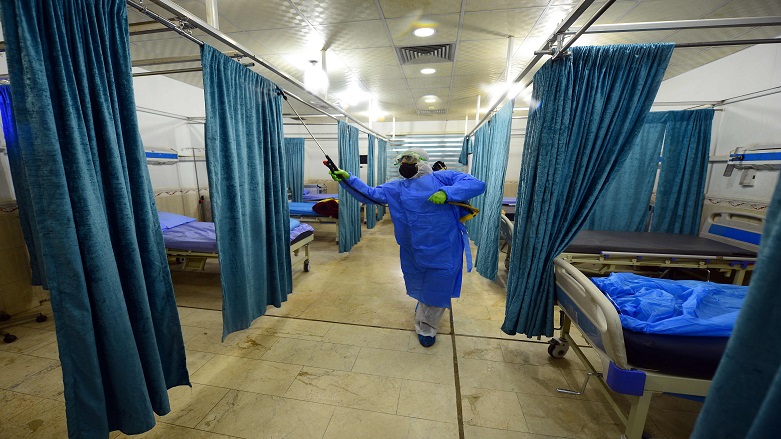COVID-19: As Iraq nears 165,000 cases, officials warn of another wave

ERBIL (Kurdistan 24) – The Iraqi Ministry of Health and Environment announced 3,841 new coronavirus infections and 53 deaths over the previous 24 hours as officials warned that numbers could continue to spike.
According to the ministry’s daily pandemic statement, the total number of patients known to have contracted the highly-contagious disease since the first one was confirmed in February has reached 164,277 and those who have died number 5,641. Over 117,000 are being classified as having recovered, although this indicates only that they are no longer actively receiving medical treatment and does not account for potential long-term health effects.
Earlier on Thursday, the committee in Iraq's parliament tasked with coordinating the response to the pandemic warned of a sustained spike in the number of infections.
"The coming days will witness a significant increase in the number of daily coronavirus infections due to a failure to implement measures and decisions taken to curb the pandemic," member Ryaz al-Masoudi warned in a statement, noting that "decisions taken are only on paper and are not implemented on the ground."
Masoudi explained that the curfew, in effect, applies only to state employees and students, but it does not exist on the streets.
“The continuing high daily infection rate makes the Ministry of Health unable to cope with the increase and the government is required to put urgent plans in place to confront the next big wave of the virus."
Read More: COVID-19: Iraq confirms 3,441 new cases, 57 deaths in a single day
On Friday, Undersecretary of the Ministry of Health Hazem Al-Jumaili said that such numbers acted as an "alarm bell" among health professionals and that the public must take the pandemic more seriously.
"Citizens' commitment to preventive measures is the most important factor in reducing the number of infections," he said, arguing that the ongoing spike in cases is "the result of the citizen's failure to comply with health guidelines."
The coronavirus has infected more than 20.7 million people worldwide and killed over 750,000 according to government-reported data compiled by Johns Hopkins University. The actual figures could be dramatically higher due to insufficient testing capabilities or underreporting.
Editing by John J. Catherine
